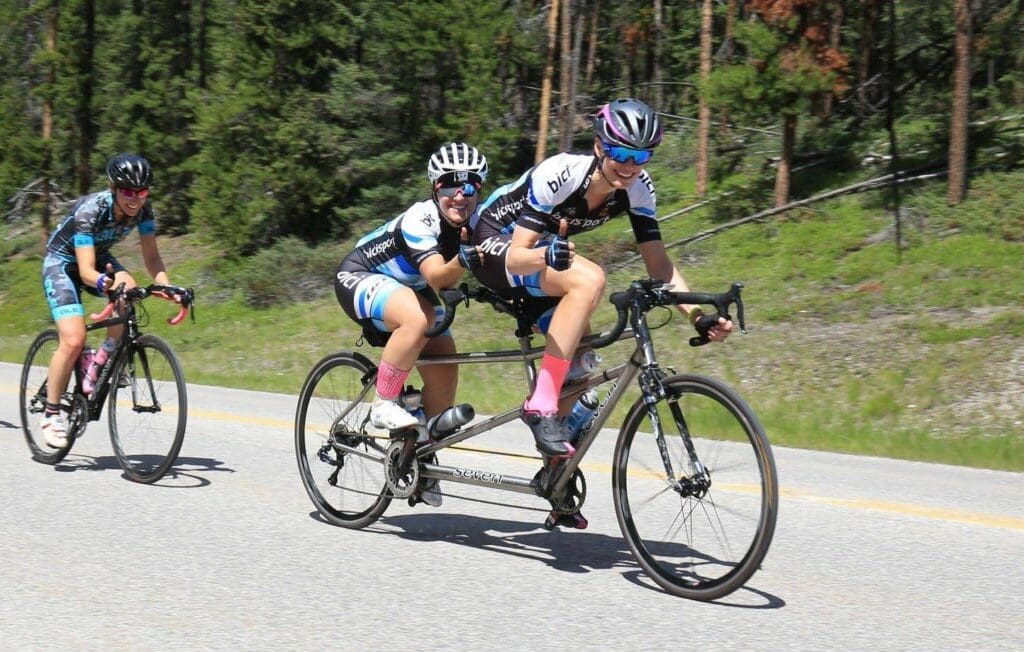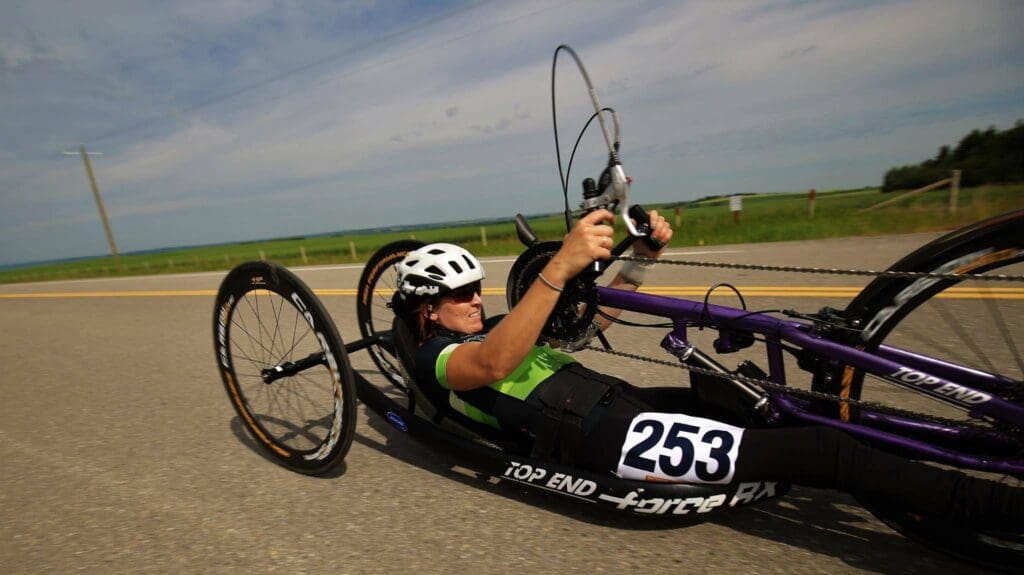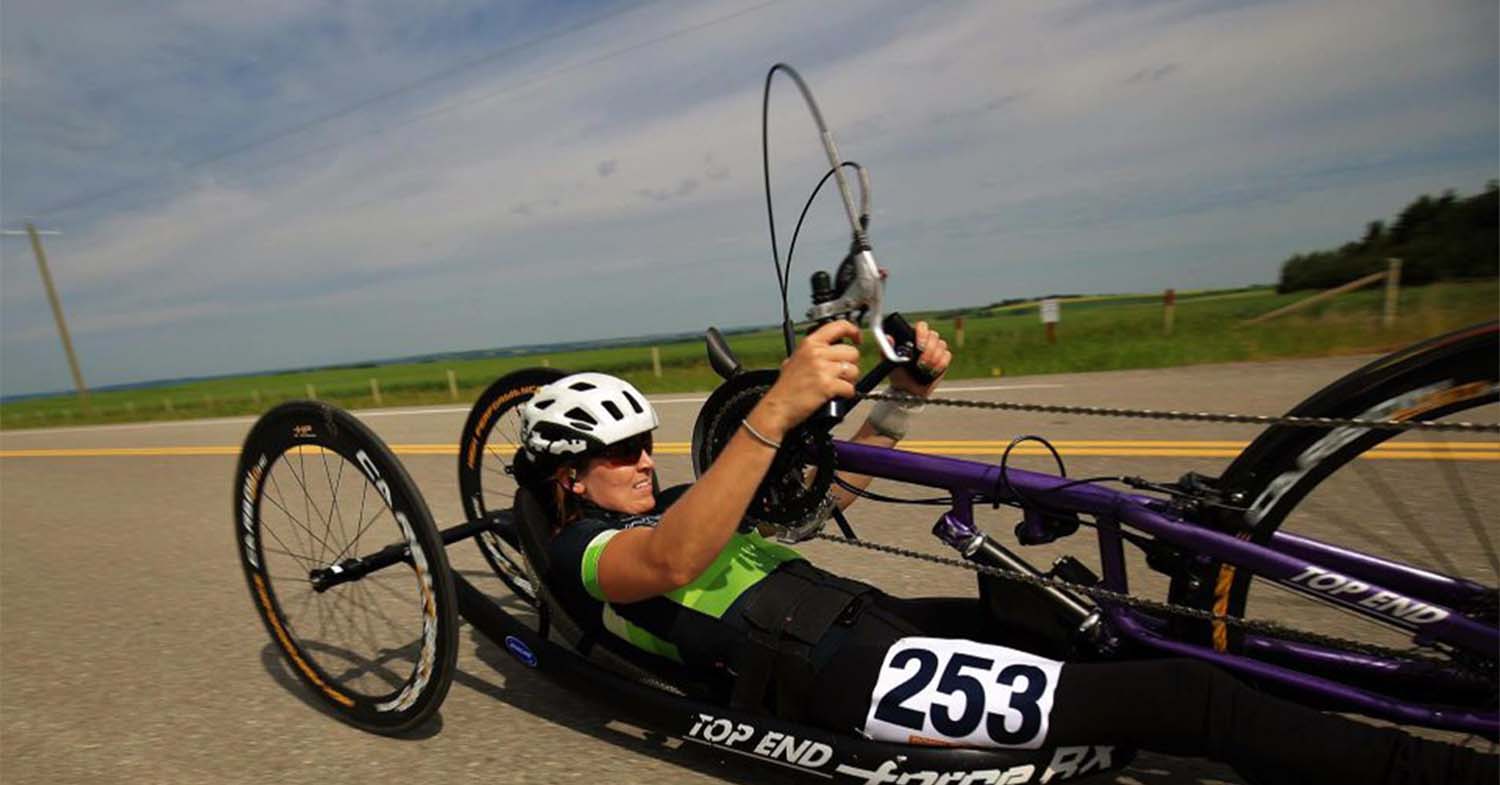Trying to figure out how to live your life after a devastating diagnosis is challenging and represents a significant change in your life. Physical activities that you enjoyed prior to the accident may suddenly become impossible. Fortunately, there are constructive ways to deal with injuries. By persevering and maintaining hope, you can set and reach new goals.
The stories of Carla Shibley and Kara Douville are two inspiring examples of resilience, passion and dedication. While Carla is legally blind since age ten, Kara suffered from an L2 spinal cord injury. Yet, these two para-cyclists are currently qualifying to represent Canada at the Tokyo 2020 Paralympic Games. Assiff Law is a proud sponsor of these two inspiring ladies, and we asked them how they make the most of life despite their disability.
For Carla Shibley, a bright outlook

An inherited macular dystrophy stripped Carla Shibley of her sight, but it could not cloud her drive. Her dedication is a gift from her mother, who raised Carla and her two sisters alone: “Anytime I wanted to give up, my mom never let me. Every time I wanted to try something and people doubted I was able to do it, she would support me.”
At age ten, after three years of unsuccessful and stressful tests to determine the cause of her eyesight issues, she was eventually diagnosed with a degenerative eye condition called Stargardt disease. As she gradually lost her sight, Carla felt angry and sad: “Why me? Can [the doctors] fix it? So many different thoughts ran through my head. Also, I felt horrible to add this to my mother’s plate.”
It’s in her late teens, as her eye condition was getting worse, that she stopped feeling angry at the world. Carla says she woke up one morning, tired of being scared, tired of the “what ifs”. She told herself “I can either sit in my room and stay in the dark or I can enjoy the rest of my life and be able to share my story.” She adds, “When I stopped doubting myself and I started confronting my fears was when I was able to move forward.”
She also stopped surrounding herself with people who use her vision impairment as an excuse. By doing so, they limit the experiences disabled people can have, thinking they are going to fail.
This life-changing decision was quickly followed by another decisive moment. Indeed, after years of refusing to engage in adaptive sports (despite the risks of competing with sighted athletes), she finally transferred to Goal Ball, a sport for individuals with vision loss or blindness, when a cycling coach spotted her and convinced her to cross-train in tandem cycling.
She fell in love and chose to pursue cycling full-time in 2015. Since her transition, she has been competing and medaling at the National Level. Recently, she placed 2nd in the Canadian Para-Road Championships Individual Time Trial and 3rd in the Road Race. She is now preparing for the transition into the High Performance Elite Team, where she’ll have the opportunity to be selected for international events and to keep on supporting the inclusion of women and those with lesser access into sports: “No matter how hard it gets, no matter how much you want to give up because of the pain, don’t give up. There is always light at the end of the tunnel. It doesn’t matter if it takes a year or twenty-five years to figure yourself out; at least try.”
Strong-wheeled Kara Douville

Outdoor guide Kara Douville had to reconstruct her life after several career-threatening injuries. In 2013, after a rock-climbing accident, she woke up with a compound fracture in the left coccyx, a fractured pelvis, a dislocated left elbow, a broken wrist and a burst fracture of the L1 vertebrae. Following several surgical procedures, she was diagnosed with a spinal cord injury, resulting in some loss of function below her injury level.
“Outdoor activities being a part of my life, I was worried that all of that would have to change. I was devastated.” If you have a career and it’s taken away, you feel like your life as you knew it has come to a close: “I was grieving so much at the time, the loss of the life I wanted, the loss of my passion, the loss of my physicality, which I thought at the time was the most important thing.”
Kara layed in bed, day after day but her friends and her mother didn’t let her yield to self-pity: “I was not comfortable with my situation, and I wasn’t willing to try new things, but she forced me to get out and try some activities while I was still in the hospital.” That’s how she was introduced to hand cycling while still at the rehabilitation program at the Foothills Hospital in Calgary, Alberta.
Around the same time, she finally chose to accept her situation and to figure out how to do the things she loved, as opposed to passively hoping for a miracle: “I was afraid that I would spend my life hoping for something better, instead of living it.”
Fortunately, a local coach spotted her and insisted she continues with the sport once she was discharged from the hospital. After only 4 months of recovery, she raced recreationally, in order to regain strength and to get back to her active and adventurous lifestyle. She pursued other adaptive sports simultaneously and even started to climb again.
But there was something special about cycling, and she began training full-time. Last June, she placed first in both the Individual Time Trial and the Road Race, making her the current Canadian Champion. Like Carla, she also trains with the Next generation West program offered by Cycling Canada, with the ultimate dream of qualifying for World Cups and the Paralympics, where she hopes to inspire people to live healthier lifestyles: “If you want to do something and it doesn’t exist, figure it out. Stay active: it makes a huge difference in the recovery. If you choose to see [your disability] as an opportunity or a learning experience, so much value can be found. These are the moments that really make you who you are.”
Feeling in awe of Carla and Kara’s story? Just like Assiff Law, you can help fund their journey to represent Canada at the Tokyo 2020 Paralympic Games by becoming a sponsor! Read their sponsorship letter or contact Kara to see how you can support them.

